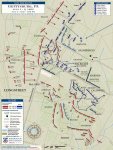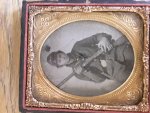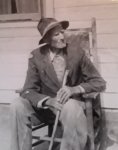westcobbdog
Senior Member
I can remember my dad taking me to a really old little cemetery a long time ago. It was somewhere between Clayton and Tate City GA at a small church. There were a lot of his people buried there, and I remember it seemed that half the graves had Confederate battle flags on them. I wish I could find it again.
Findagrave.com may list the Cemetery.I can remember my dad taking me to a really old little cemetery a long time ago. It was somewhere between Clayton and Tate City GA at a small church. There were a lot of his people buried there, and I remember it seemed that half the graves had Confederate battle flags on them. I wish I could find it again.





